Why would you leave Canada? Expats hounded by same question
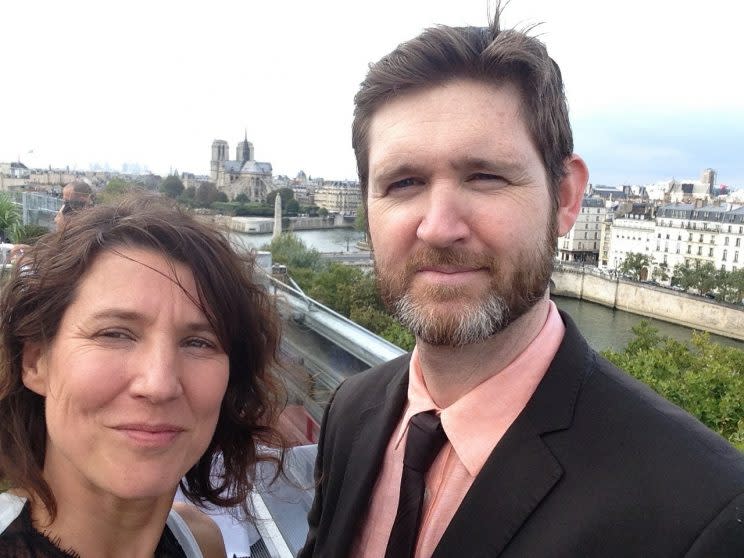
Germans often mention How I Met Your Mother when asked what they know about Canada.
The show, which ran from 2005 to 2014, featured Canadian actor Cobie Smulders as Robin Scherbatsky, who had a brief pop career in Canada as “Robin Sparkles.” In the series, Canadians are revealed to be avid hunters, hockey-and-whisky loving people who are afraid of the dark and love to BBQ in the winter.
That image certainly got a progressive makeover with the election of Justin Trudeau, cementing Canada as kinda cool and hip. Articles in major publications extolled Canada as a kind of social nirvana — only Finland beat us to the top for the latest rankings on the Social Progress Index.
In October, the Economist had a headline blaring: Canada’s example to the world: Liberty moves north.
So it’s no surprise that Canadians abroad get a lot of quizzical looks of late. Especially in Europe. The question is always a variation of: “Why would you leave such a great country like Canada?”
Berlin, Germany
“People have this fairy tale, romantic version of Canada,” Cheryl Howard, who was raised in Woodstock, Ont., and lived in Toronto, told Yahoo Canada News. Howard, who works in the high-tech sector, said many of the Brazilians and Germans at work always ask the same question.
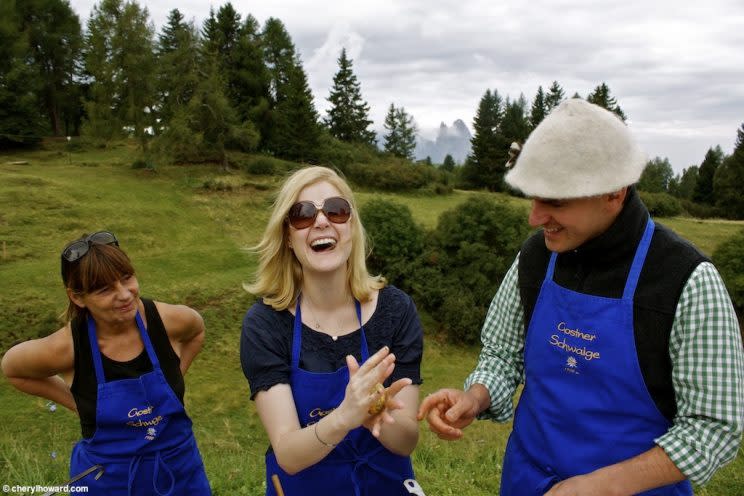
“I tell them I’ve lived there all my life and I wanted to experience something different,” she said. Howard moved to Berlin in 2011 and also runs a travel blog. She says Canada is seen to be some sort of progressive, multicultural paradise where everyone gets along.
“Prejudice can be just as prevalent in Canada as in the U.S. … if you venture out of the bubble of Vancouver and Toronto,” she pointed out.
Howard also likes to highlight the fact some things in Germany are more progressive than Canada — consider the free education at universities (save for small administrative fees and of course, the cost of living) and the “amazing” childcare, which costs very little.
“They have forest kita’s here,” she said, referring to the Berlin word for daycare, which costs 80 to 120 euros/month. “Kids play in the forest all day! In Canada, I know parents have to spend so much on daycare, so much so it would make sense for one of them to stay at home.”
Howard also found Toronto too expensive and residents focused on material things: “It was pretentious. People seemed to really care about their house or condo and having all these things. Here, there is community spirit.”
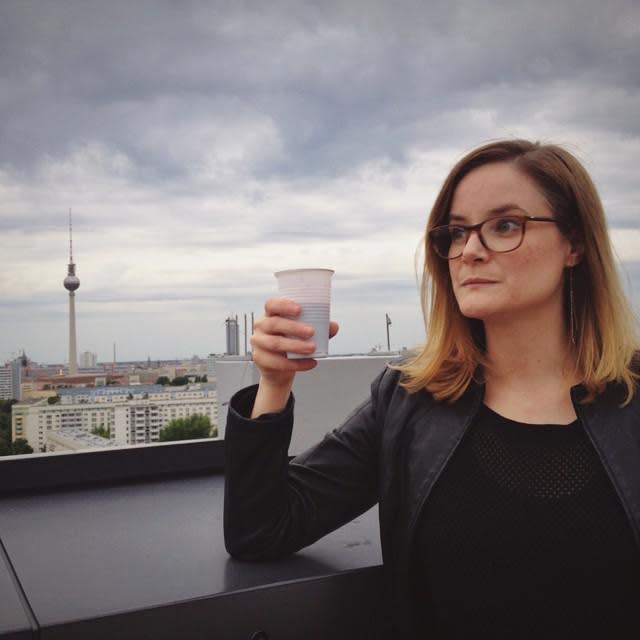
She also likes the mix of people in Berlin: “I met a lot of lawyer-types in Toronto and here people are always doing something else. I met this guy who was doing a photography project about scarves when I volunteered at the refugee shelter.”
Paris, France
Peter Murphy would agree. He lives in Paris.
“I wanted a life,” he told Yahoo Canada News. “In Paris, when I have a down day, I just open the door and have a walk. The way the city is set up, it’s history, it’s beauty. I am lifted.”
Murphy, who grew up in several small towns in Ontario and also lived in Toronto, moved to The City of Light more than 18 months ago. His wife Marjorie is Parisienne and they have two children born in Toronto. Murphy was a policy analyst with the Directors’ Guild of Canada and Marjorie was a cultural reporter with Radio-Canada. They quit their jobs.
“Taxi drivers always ask: Why would you leave Canada?” he said. “I say everything floats in the middle there. The ups and downs are minimal. Here, the conversations are heated. It is exciting.”
Murphy lived in Paris from 1999 to 2006 — he met Marjorie there and they got married and moved to Toronto shortly after.
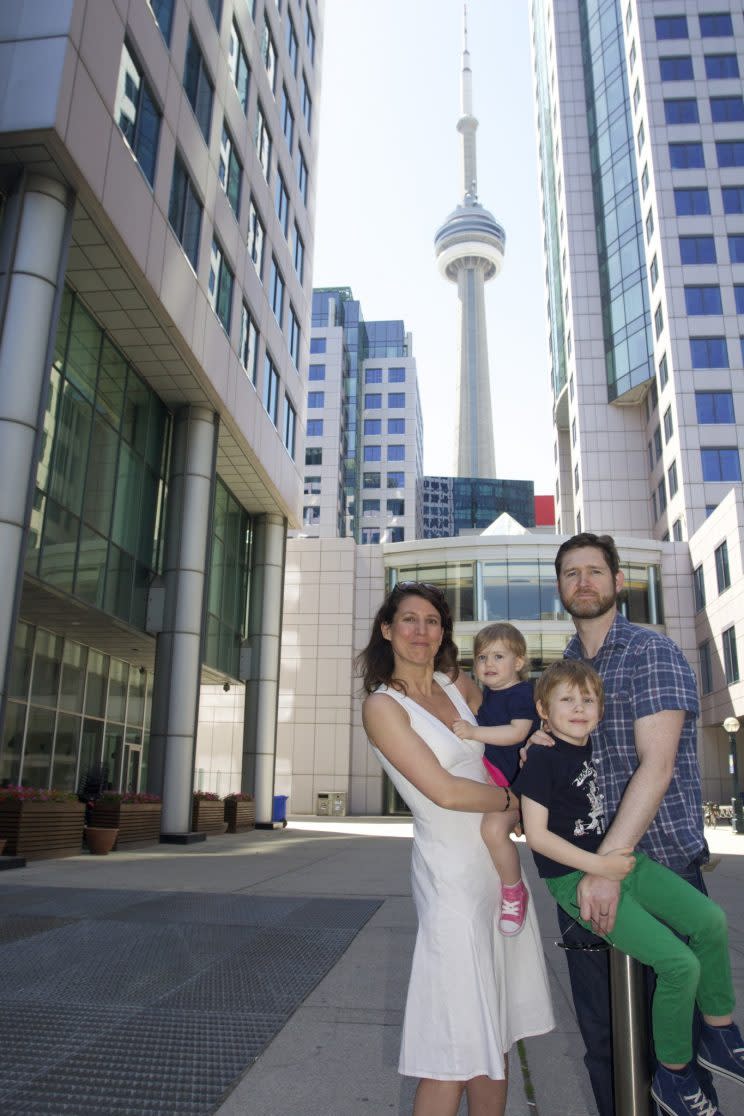
“The general interaction with Canadians is about the weather, or hockey. Something trivial,” he said. “Recently, I was in a photography shop and this French guy noticed my camera and liked it. In the end we had a 15 minute conversation about photography influences. That just doesn’t happen in Canada.”
It’s this kind of engagement Murphy relishes: “We can’t have conflict in conversations in Canada. It’s uncomfortable. You have to change the subject.”
‘It’s superficial’
His wife Marjorie concurs: “The French have a crazy life! In Canada, nothing seemed interesting.”
She felt a certain coldness in people, even though they were nice.
“It’s superficial and though many people are friendly, I left Toronto after nine years and I can count about a handful of good friends.”
As with many Canadians — she also has dual citizenship — Marjorie gets asked a lot about why she would leave “El Dorado.” In fact, sometimes, she works for the Canadian Consulate in Paris by attending immigration expos where French people can ask her about moving to Canada.
“I tell them it’s like every other country: there are good and bad things and yes, it is a great place to live for awhile,” she said. “I say if you go to Toronto, it’s about money i.e. your career.”
She adds that the French are mostly concerned with Montreal: “For them, Montreal is Canada.”
Unlike her husband, Marjorie does have twinges about moving. After the birth of her second child, who is now five, she made an effort to settle into Toronto.
“The city developed quite well from the time I arrived in 2006. I actually liked it. People like to compare it to a young New York — but it’s definitely not New York, a place I lived in for a year in my 20s,” said the 43-year-old journalist. “In about 30 years, I think Toronto may be quite amazing.”
For now, she remains 50/50 about Paris. She’s not working as much: “Life was much easier in Canada.”
Seoul, South Korea
On the other side of world, in Korea, Riley Maw says he’s very satisfied with his life. The Brandon, Man., native moved to Seoul in 2005 shortly after graduating with a degree focused on teaching physical education.
“I have a good quality of life here,” Maw told Yahoo Canada News during a Skype interview. “That’s important to me.”

Maw met his Korean wife within months of landing in Seoul. He married Hajung Lee in 2008. Maw teaches English — like a lot of foreigners in Seoul.
“As an English teacher, they automatically assume you’re going home. But, I’m not.”
In general, Maw says Koreans remember that Canada fought in the Korean War so the country already has a lot of goodwill.
“They always say: Canada great! Big economic power, that’s good,” explained Maw.
“I have an active social life here. That lifestyle comes at a lot more reasonable price here than in Canada,” said Maw, 34. “We just bought a penthouse in the outskirts of Seoul for $300,000. Income tax is only 3.3 per cent. In the middle of Seoul, you can have a one-bedroom apartment for about $500 a month.”
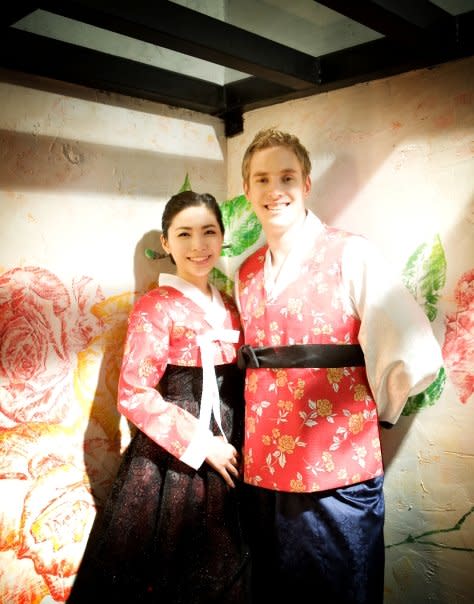
Maw said he thinks Canadians get taxed too much — for what they are getting. He’s not especially attracted to the government of Justin Trudeau.
“I find that he doesn’t have much substance. There’s no attraction for me to move back ,” said Maw, who adds that he and his wife are hoping to retire in Thailand.
Maw also cites the low cost of public transportation ($2 to get anywhere around the metropolitan area of Seoul), inexpensive car insurance ($500/year) and fast, cheap internet: “Every little bit counts. I don’t regret leaving at all.”
The Manitoban does miss some things: “My friends and family, prairie sunsets and swimming in the lakes.”
But the feeling fades when pondering spending November to March in his hometown: “Winter is the worst ever.”

 Yahoo Finance
Yahoo Finance 
